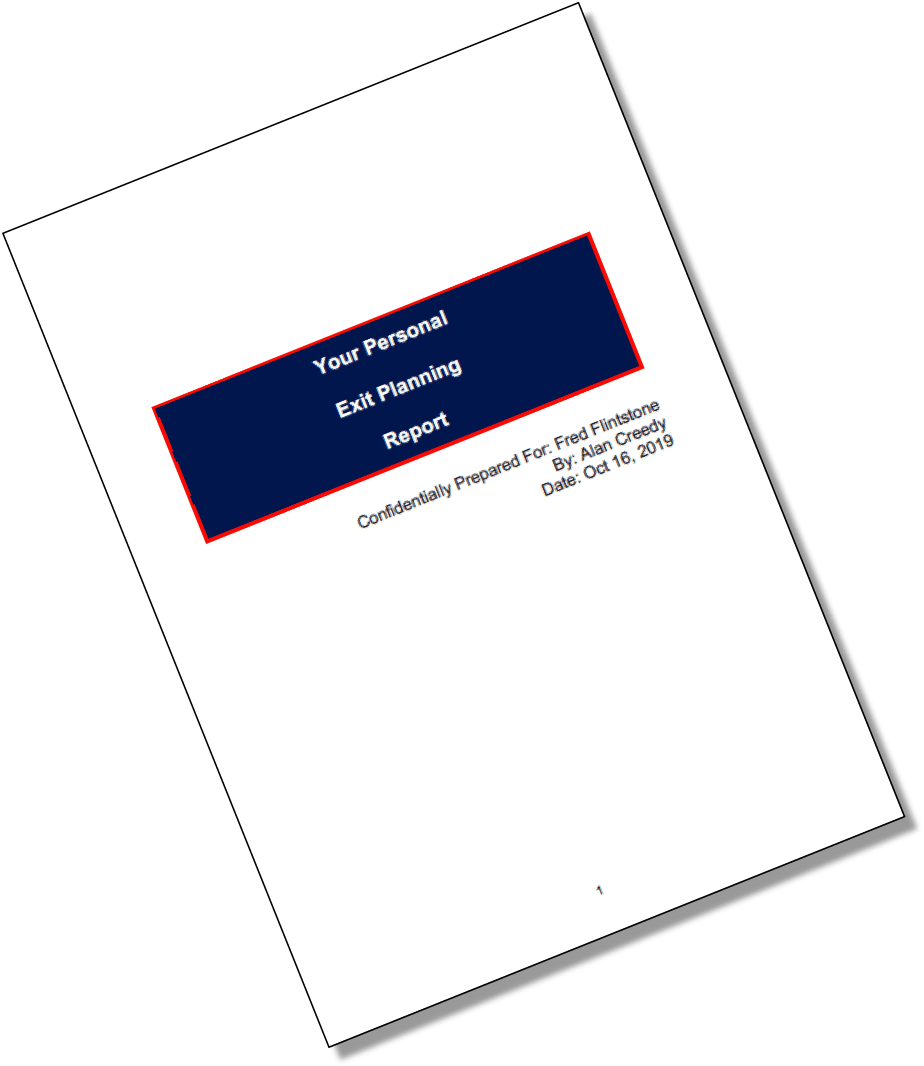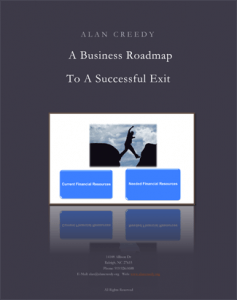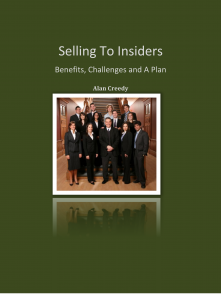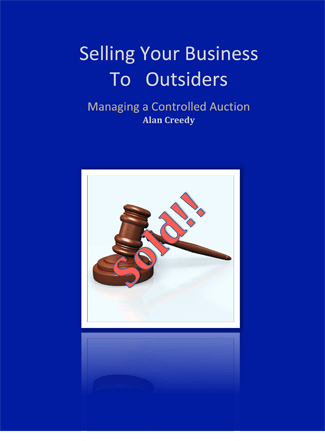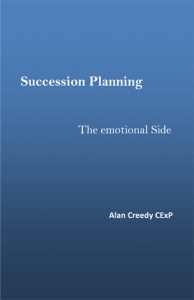Scroll down to order free succession guides
Retirement is an event…
Succession Is A Process
One Thing I have Learned
Owning a business is not like having a job or making an investment in public stocks. Owning a business is deeply personal in multiple ways. Not only is ownership a source of income and financial support but it is a lifelong role. In some ways it is our place in society and most definitely in our community. In a way ownership of your business, over time becomes sacred.
Selling a business representing decades and even generations of involvement can be scary. As that closing day approaches sellers begin to face a form of their own mortality. The initial enthusiasm can give way to many self doubts.
As with an individual life, owning a business is linked to a powerful story…a story about you, your family, your customers and, of course, your staff. These are stories of hard work, sacrifice, risks, fortune & misfortune.
The one thing I have learned in the process of assisting owners transfer their business is that I need to engage at a higher level than a simple financial transaction. Selling / Transferring means something different to every person. Unless I know what that “different” is for THAT person I cannot fully help them.
The other thing I have learned
Buyers come in different “flavors” wanting to write different stories. As a result bringing the buyers and sellers together has almost as much to do with fit as it does with price. Finding a good fit is important.
Finally
There are two different types of transfers that can have significantly different results and tax implications
- Insider transactions involving:
- Children or other relative
- Key Employees
- Third party transactions involving:
- A local competitor / colleague
- A regional acquirer
- A national acquirer
- A publicly held company
Each has their own pros and cons. Each has their own idiosyncrasies and risks.
My Goal
Enable my clients to find the best fit and price and transfer their business on their terms…so they can begin writing a new story for themselves and their family.
Your Free Exit Strategy Assessment
Where do you fit and what should you do?
We will all exit one way or another. The key is whether it will be on your terms or someone elses.
There are 4 basic situations in exit planning, all having to do with emotional and financial readiness.
- Ready to leave now, financially able
- Not ready to leave now, financially able
- Ready to leave now, not financially able
- Not ready to leave now, not financially able
The 5 minutes it takes you to complete this assessment will give you a head start, personalized advice and 30 minutes free time with me.
Click on the image on your left to take the FREE assessment and get your FREE Emergency Continuity Plan.
Download Your Free Succession Guide Here
Roadmap To A Successful Exit
For most of us, getting ready to exit our business is unlike anything we have ever done before. Many believe it should be an unemotional business task…but it is not and cannot be.
Most of our adult life has been spent nurturing our business and so our emotions are inextricably intertwined with it. For many in funeral service it is also the culmination of multi-generational stories. Stories of hard work, sacrifice, risks taken, victories and disappointments …small and large. In all respects, exiting your business…your career…is a momentous life transition no matter how well we prepare. We ignore the emotional side at our peril.
It is also inevitable. According to the Business Enterprise Institute some 69% of business owners plan to exit within the next 10 years. Of these, 85% have no one yet in place that can replace their skills and responsibilities. The reality is that 100% of us will exit our business…willingly or not.
Selling to Insiders
Virtually half of small business owners would prefer to sell their business to family or staff. But the practical and emotional complexities of selling to insiders can often seem more challenging than a straight third party sale. In reality, both have nuances that are equally stressful.
It is important you know there are no challenges that can’t be overcome with careful planning and preparation.
Outside Buyers:
An outside buyer is an individual or entity that is not your partner, employee or relative.
“One Buyer is No Buyer”
Your goal is to sell for as much as you can reasonably (or, sometimes, unreasonably) get whereas the buyer’s goal is to buy for the least amount possible. Consequently, your goals are not, nor can they be, in alignment. Even if you have a “preferred” buyer it is important in selling to outsiders to have options. It keeps things moving and ensures you optimize your what you get and keep.
Selling the family business is…
…unlike anything you have done before. No matter how often an owner tells me that he or she isn’t emotionally attached I have come to realize it simply isn’t true.
Selling the family business is, in point of fact, an emotionally charged event. It is deeply personal. For many it borders on the sacred. Sometimes it seems like a seller is saying by their behavior:
“I am conveying what I have paid for with my heart and strength for a promise. A promise that you, Mr. Buyer, will keep your promises to me and my promises to my community. My life story is wrapped up in the business’ story. People have come to depend on it…and… on me.”
I was compelled to write this guide because, in every case, I observed a pattern similar to the pattern experienced by grieving persons. Most sellers are unprepared for the “soft” side of selling a business.
